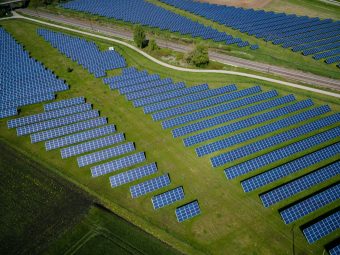
The Council has adopted a regulation on establishing a framework of measures for strengthening Europe’s net-zero technology manufacturing ecosystem, better known as the ‘net-zero industry act’.
This is the last step in the decision-making process.
The regulation aims to boost the industrial deployment of net-zero technologies that are needed to achieve the EU’s climate goals, using the strength of the single market to reinforce Europe’s position as a leader in industrial green technologies.
‘‘The net-zero industry act is one of the foundation stones of a new industrial policy. This legal act will help Europe to lead the global race for green technologies and make sure that our contribution to the fight against climate change also reduces our dependencies, reinforces our strategic autonomy and helps us to create growth and jobs in Europe’’, Jo Brouns, Minister of Flanders for Economy, Innovation, Work, Social Economy and Agriculture.
Boosting green technologies
The net-zero industry act will create favourable conditions for investment in green technologies by:
- simplifying the permit-granting process for strategic projects
- facilitating market access for strategic technology products (in particular in public procurement or the auctioning of renewable energies)
- enhancing the skills of the European workforce in these sectors (i.e. with net-zero industry academies and high-concentration industrial areas or ‘valleys’)
- creating a platform to coordinate EU action in this area
To foster innovation, the legal act proposes to create favourable regulatory frameworks for developing, testing and validating innovative technologies (known as ‘regulatory sandboxes’).
Progress towards the objectives of the net-zero industry act will be measured by two indicative benchmarks. Firstly, manufacturing capacity of net-zero technologies, such as solar photovoltaic panels, wind turbines, batteries and heat pumps, reaching 40 per cent of the EU’s deployment needs. Secondly, a specific target for an increased Union share for these technologies with a view to reaching 15 per cent of world production by 2040.
In addition, the net-zero industry act sets up an annual injection capacity of at least 50 million tonnes of CO2 to be achieved by 2030 in geological storage sites located in the territory of the Union.
More:
- NET-ZERO INDUSTRY ACT: COUNCIL AND PARLIAMENT STRIKE A DEAL TO BOOST EU’S GREEN INDUSTRY
- FIT FOR 55: COUNCIL GIVES FINAL GREEN LIGHT TO CUT METHANE EMISSIONS IN THE ENERGY SECTOR
- RECORD REDUCTION OF 2023 ETS EMISSIONS DUE LARGELY TO BOOST IN RENEWABLE ENERGY
Next steps

Following the Council’s approval of the European Parliament’s position, the legislative act has been adopted.
After being signed by the President of the European Parliament and the President of the Council, the regulation will be published in the Official Journal of the European Union and will enter into force on the day of its publication.
Background
The net-zero industry act is one of the three key legislative initiatives of the green deal industrial plan – together with the critical raw materials act and the electricity market design reform – to enhance the competitiveness of Europe’s net-zero industry and support a rapid transition to climate neutrality.
The Commission tabled its proposal on 16 March 2023. The European Parliament adopted its position on 21 November 2023 and the Council its general approach on 7 December 2023. The Council and the Parliament reached a provisional agreement on 6 February 2024, which was voted on in a plenary session in the European Parliament on 25 April 2024.
Source: European Council

